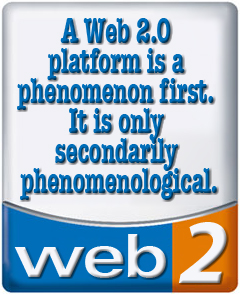Catherine Reagor, the Arizona Republic‘s tribute to the enduring utility of the Peter Principle, allows that the method the newspaper uses to report Metropolitan Phoenix real estate values might be a little off-target: Valley’s skyrocketing median home price a bit deceptive:
In the wake of home sales plummeting, the uptick in the median home price may look like the housing market’s bright spot. Some homeowners may be cheered, thinking that their values are climbing. But the figure is deceptive.
The median Valley home price is climbing because the number of pricey Valley houses that are selling has jumped in the past year as the number of more-affordable homes has fallen.
In June, almost 40 percent of all existing homes to change hands sold for $300,000 or more, according to the Arizona Real Estate Center at Arizona State University Polytechnic. Early last year, only 25 percent of all resales cost that much.
Only 14 percent of the houses to sell last month cost less than $199,000. At the beginning of 2005, before Valley home prices started their rapid ascent, 38 percent of all resales were priced below $200,000.
There’s so much wrong with this that it’s hard to know where to begin. As I pointed out the other day, the analysis is inherently defective:
Dr. Butler (and his faithful amanuensis at the Republic) seem not to understand that we just went through a price boom. Fewer houses are selling at less than $200,000, but that’s because there are almost no houses priced at less than $200,000.
From the BloodhoundRealty.com Market-Basket of homes, the average sales price of a home at “the beginning of 2005” was $193,637. The average price of a market basket home in June 2006 was $257,999. If the average price of a home is $64,000 higher, wouldn’t it follow that the entire range of home prices might be higher?
Ms. Reagor can’t or won’t do math. At the least, she doesn’t do math, leading her to regurgitate without question any absurdity enunciated to her by her sources. But there’s really nothing for it. The method the Republic uses to analyze the real estate market is defective, so the reporting would be absurd even if the reporters were careful about verifying facts. From last November’s Bloodhound newsletter:
When newsmakers make pronouncements about the real-estate market, they are conflating everything with everything else: north Scottsdale with south Phoenix, the stately custom homes of Litchfield Park with the ramshackle trailers of Ellsworth Road in east Mesa.[…]
Real estate is non-fungible. That’s the fancy way of saying that no one home can be substituted for another. So, to say that homes in greater Phoenix appreciated by 47 percent from July 1, 2004, to June 30, 2005, is interesting, but it is not hugely revealing. It conflates too many unlike homes and neighborhoods to be valuable.
It’s much more useful to note that the 1,603-square-foot Terracina floor plan in Ashton Ranch in Surprise appreciated by 67 percent in that same span of time. The 1,313-square-foot Vail floor plan in Rancho Santa Fe in Avondale was up 56 percent. The 1,273-square-foot Sterling model in Fletcher Heights in Peoria gained 56 percent in value.
The Republic‘s analysis of the market takes the aggregate of all recorded transactions to strike a median for the entire Valley (however defined — nothing is revealed of the underlying method). That means everything from trailers to mansions, presumably from Wickenburg to Apache Junction. Wouldn’t you feel much cooler, in the heat of the Arizona summer, if you knew the median temperature for the continental United States? The smallest area the paper deals with is a zip code, which can be a vast and very diverse region. There is nothing like true comping, not house-to-house, not among homes within a subdivision, not among similar subdivisions. This is not the worst possible methodology, but it is very, very far from good.
So even if the reporters were careful, even if the quoted sources were held to facts, rather than gut feelings, even if the numbers used were transparent and made available for independent verification, still the reporting would be erroneous, at best. The method used to arrive at the ‘news’ is faulty, and, hence, the results are faulty.
Technorati Tags: phoenix, phoenix real estate, real estate

The soul of wit, Seth Godin cites The Long Tail
today. We’ve mentioned this book a time or two, and, of course, it’s featured (along with Seth’s latest)
in our reading list. I have plans to say more about it, but I haven’t gotten to it yet. Suffice it to say, this is a book that everyone in sales and marketing should read, mark, learn and inwardly digest — and then put into practice.

 For some people, the sky is always falling, and they refuse to consider that real estate might not fit into their Templates of Doom. In addition to persistent demand for particular locations, home sellers in a buyer’s market are a
For some people, the sky is always falling, and they refuse to consider that real estate might not fit into their Templates of Doom. In addition to persistent demand for particular locations, home sellers in a buyer’s market are a  It may occur to you to ask, “Why?” That’s really a pre-Web 1.0 question. Web 2.0 is not about getting things done, it’s about getting people together. It’s not about what we as a club-composed-of-people-who-have-never-met have accomplished, it’s about how we feel about it.
It may occur to you to ask, “Why?” That’s really a pre-Web 1.0 question. Web 2.0 is not about getting things done, it’s about getting people together. It’s not about what we as a club-composed-of-people-who-have-never-met have accomplished, it’s about how we feel about it.  Why do velociraptors no longer roam the earth? Because they couldn’t change. For all their ferocity and intelligence, they were not able to adapt to their changing world. Not able because they were not blessed with the human triumph of will, they couldn’t want to change, and so they became extinct.
Why do velociraptors no longer roam the earth? Because they couldn’t change. For all their ferocity and intelligence, they were not able to adapt to their changing world. Not able because they were not blessed with the human triumph of will, they couldn’t want to change, and so they became extinct.